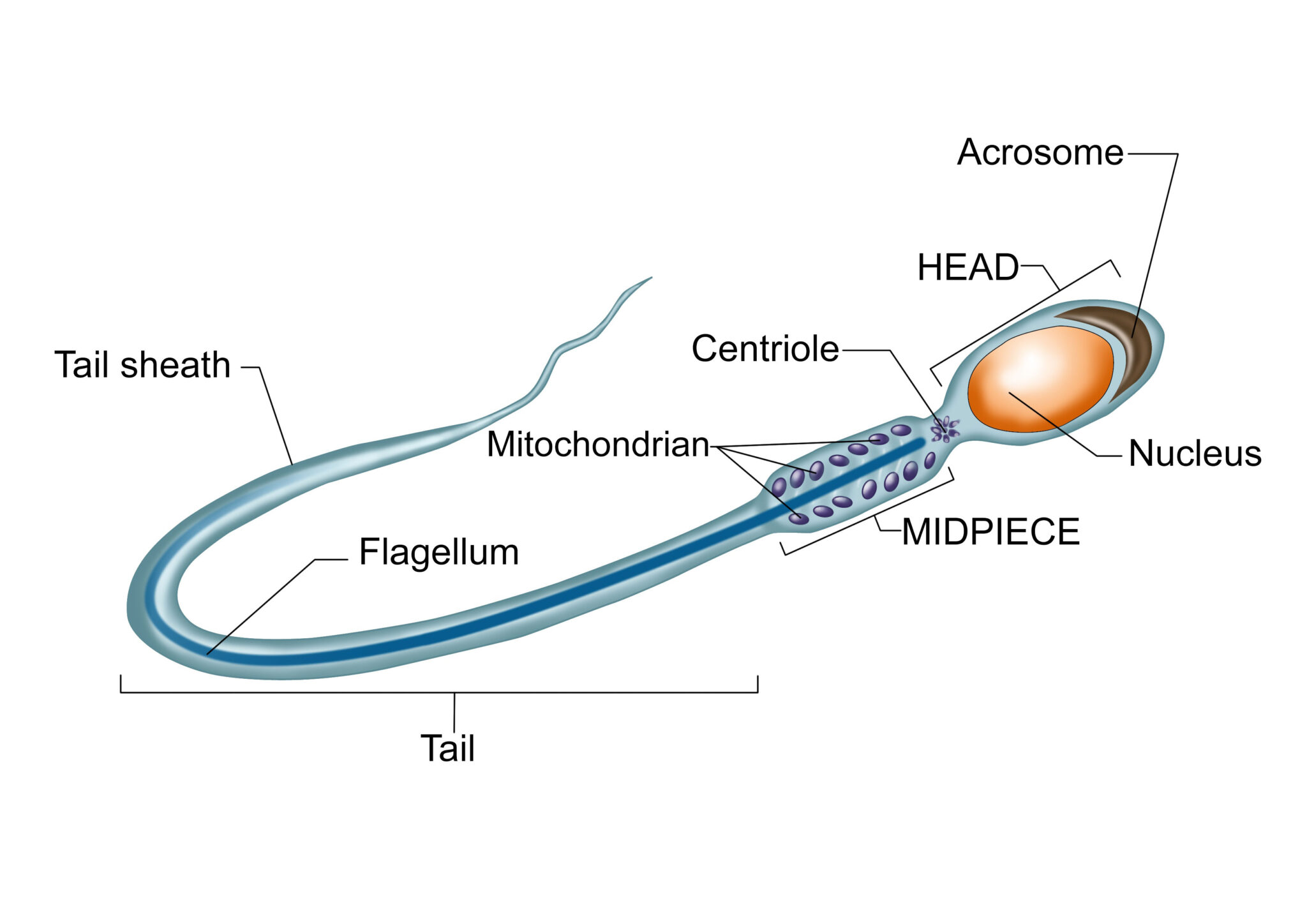Notes on Sperm Cell Structure: Overview of anatomy and MCQ for NEET, GPAT, CUET, competitive exams
The human sperm cell is a specialized male gamete designed for delivering genetic material to the female ovum. Its unique structure facilitates mobility and successful fertilization. The sperm cell comprises four primary regions:
-
Head
-
Nucleus: Contains tightly packed haploid DNA (23 chromosomes), essential for combining with the female genetic material.
-
Acrosome: A cap-like vesicle derived from the Golgi apparatus; it houses enzymes like hyaluronidase and acrosin that help penetrate the egg’s outer layers during fertilization.
-
-
Neck (Connecting Piece)
-
Contains centrioles that play a crucial role in the development of the zygote’s microtubule system post-fertilization.
-
-
Midpiece
-
Packed with mitochondria arranged helically around the axial filament; these mitochondria generate ATP, providing energy for the sperm’s motility.
-
-
Tail (Flagellum)
-
Comprises the principal piece and end piece; its whip-like movements propel the sperm through the female reproductive tract toward the ovum.
-
Participate in GPAT MOCK TEST: Click Here

-
📊 Sperm Cell Structure and Function Chart
| Part | Description | Primary Function |
|---|---|---|
| Acrosome | Cap-like structure over the anterior half of the nucleus; contains enzymes | Facilitates penetration of the egg’s protective layers during fertilization |
| Nucleus | Contains densely packed chromatin (haploid DNA) | Provides paternal genetic material to the zygote |
| Neck | Connects head to midpiece; contains centrioles | Initiates formation of the zygote’s microtubule system post-fertilization |
| Midpiece | Cylindrical region with mitochondria arranged helically around the axial filament | Generates ATP to power the tail’s movement |
| Tail | Long, flagellated structure composed of microtubules | Propels the sperm forward through whip-like movements |
🧠 Multiple Choice Questions (MCQs)
GET MORE MCQ: Click Here
1. What is the primary function of the acrosome in a sperm cell?
A. To provide energy for movement
B. To penetrate the egg’s outer layers
C. To house the sperm’s DNA
D. To connect the head and tail of the sperm
Answer: B. To penetrate the egg’s outer layers
2. Where are the mitochondria located in a sperm cell?
A. Head
B. Neck
C. Midpiece
D. Tail
Answer: C. Midpiece
3. What is the role of the centrioles found in the neck of the sperm?
A. They store genetic information
B. They generate energy for movement
C. They assist in forming the zygote’s microtubule system
D. They help the sperm penetrate the egg
Answer: C. They assist in forming the zygote’s microtubule system
4. Which part of the sperm is responsible for its motility?
A. Head
B. Midpiece
C. Tail
D. Neck
Answer: C. Tail
5. What type of genetic material is found in the sperm’s nucleus?
A. Diploid DNA
B. Haploid DNA
C. RNA
D. Mitochondrial DNA
Answer: B. Haploid DNA